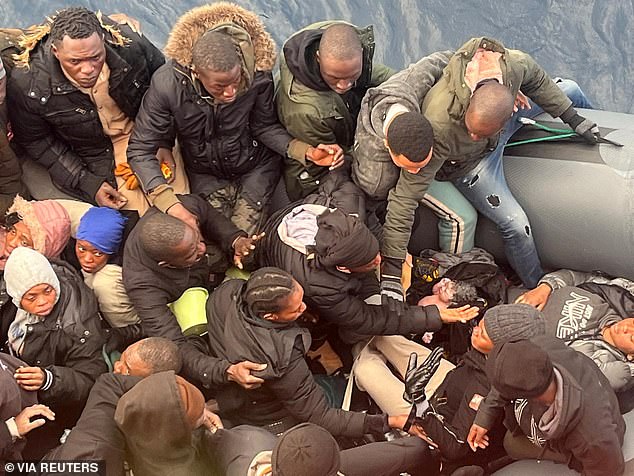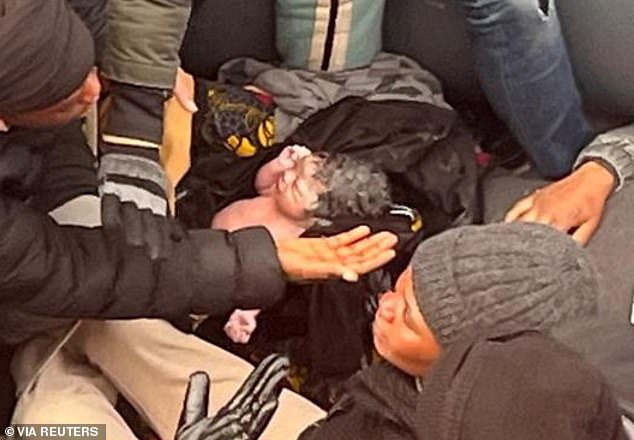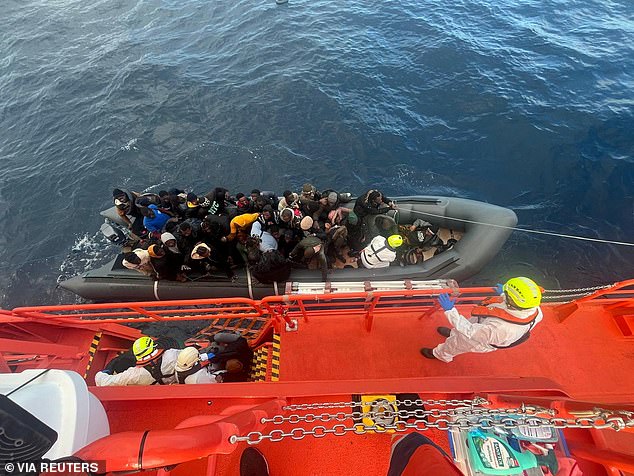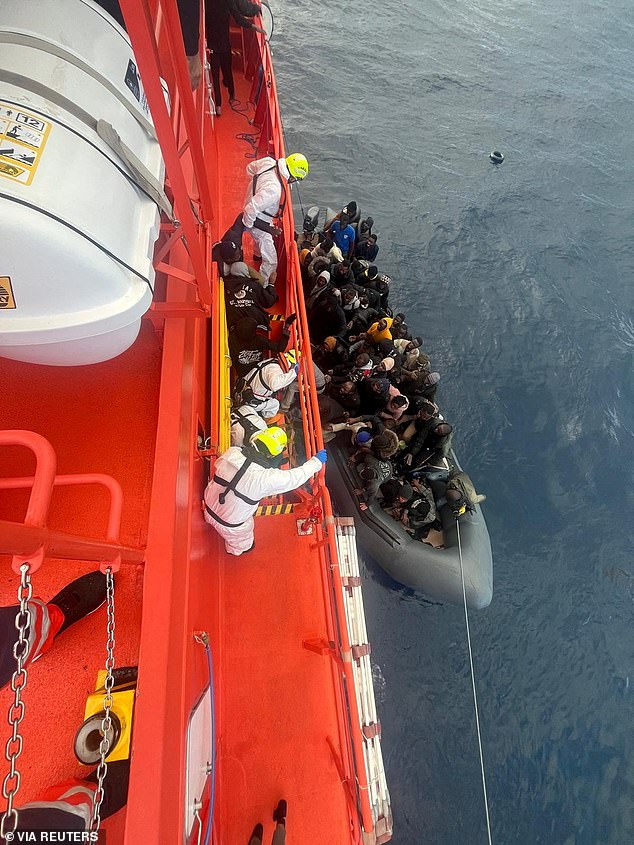This is the incredible moment rescuers found a newborn baby on a packed migrant boat in the Atlantic after the mother gave birth during the treacherous crossing to the Canary Islands.
An astonishing picture shows a migrant cradling a newborn as others on the dinghy back away to make space for the baby.
The image was taken on January 6 while coastguard boat Talia towed a rubber boat carrying about 64 migrants off the island off the Canary Island of Lanzarote, in Spain.
The coastguard shared the incredible moment on social media, writing: ‘Christmas ends in the Canary Islands with the rescue of a baby born in the middle of a sea crossing.
‘On Three Kings’ Day, the Guardamar Talia rescued a mother who had given birth to her baby on board the inflatable boat in which she was traveling with a large group of people.’
The woman and her baby were transferred to a hospital in Arrecife and are reportedly in ‘good health’.
‘The baby stood out in the middle of everyone, naked, having been born just 10 minutes before,’ the captain of the coastguard boat, Domingo Trujillo, told Canarias7.
On board the dinghy were more than a dozen woman and four children, reportedly all of sub-Saharan origin, who braced the treacherous journey over the Atlantic in a bid to reach the Canary Islands.



The rescue boat was informed at around 4am that there was a pregnant woman in advanced stages of labour who ‘could give birth at any moment’ on a dinghy in the Atlantic, Trujillo said.
He added that the boat was 97 miles from the port in Arrecife, and that it took the coastguard five hours to get to the dinghy.
When they finally reached the boat, Trujillo could see the naked baby, which he said could have only been born about 10 minutes before the coastguard’s arrival.
The captain said: ‘The baby was crying, which told us that he was alive and there were no problems, and we asked the woman for permission to clean and wash him.
‘We put the baby with her, after the umbilical cord had already been cut by one of her fellow travellers.
‘All we did was hold the child, give him to the mother and keep them warm for the trip [in the helicopter].’

Surprisingly this is not the first time Trujillo rescued a newborn baby, but he said that ‘this time I didn’t have to cut the cord, not like last time’.
He experienced a similar situation in 2020, when the Salvamar Mizar – a unit in which he was the skipper – rescued the occupants of a boat off Fuerteventura in which a woman had also just given birth, forcing Trujillo to cut the umbilical cord.
‘Although it is still beautiful and an unforgettable experience, cutting it requires a little courage, not just for the sake of cutting it, but for the fear of not doing it right,’ he said.
‘We take this opportunity to express our admiration for Domingo and the rest of the crew who every day give their best to assist thousands of people trying to reach the Canary Islands,’ the coastguard said in a statement on social media.
This comes as a record-number of 10,457 migrants died while trying to reach Spain by sea last year, according to Caminando Fronteras.
But the dangerous journey has not put off migrants hoping to reach Spanish land, with more than 2000 arriving between Christmas Day and New Year’s Eve alone.

